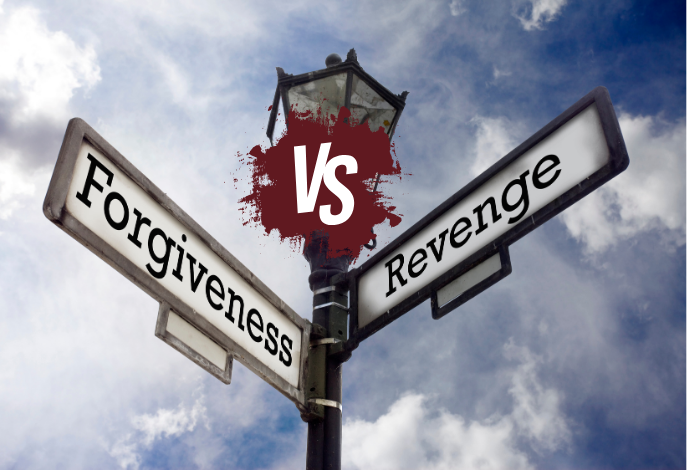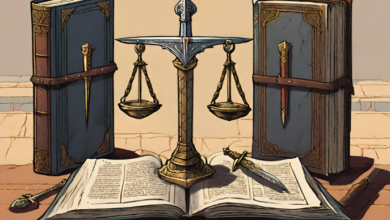
Hero Syndrome is seen when a person becomes so obsessed with heroism that he or she ends up creating a dire situation so the individual can swoop in and save the day. Social justice, to a degree, has become a movement that is marked by this syndrome. As you know the ultimate narrative of the SJM is “oppressor vs. oppressed.” In creating this narrative, social justice advocates are crafting the problem they say they are seeking to solve. Social justice, ultimately, is trying to find equality for all of humanity. Equality of opportunity is a wonderful thing that gives people incentive and inspires them to act, not only in their best interest, but also in the best interests of others. Social justice warriors, however, aren’t interested in equality of opportunity. They have set their sights on equality of outcomes. Yet when outcomes are manipulated, opportunity is overshadowed, and incentive is squelched. Under these conditions, no one is inspired to work to reach his or her full, God-given potential.
Consider, for example, the social justice narrative of “white privilege.” This theme is used as a battering ram to push for racial reparations. We also can see the push for equal outcomes in radical feminism and the myth of the wage gap. And in the LGBTQ movement, practicing “tolerance” now means accepting and even celebrating the LGBTQ lifestyle. If you don’t do both, you are a bigot. While not every social justice warrior in the church is pushing for LGBTQ rights or is promoting radical feminism, the social justice movement as a whole does promote these ideas. Moreover, the SJM that has infiltrated the church—the “Christianized” version of this movement—is pointing the church in all of these directions, even in situations where it isn’t yet doing so overtly and brazenly.
Through all of these areas and others, SJWs are demanding what they believe will be outcomes. This means calling on government to manipulate the playing field, a plea that creates a glaring irony. Social justice warriors are not satisfied with equal rights but instead insist on special privileges for “victims.” Thus, they really don’t want equal outcomes at all. Furthermore, they even will make the case for redistribution of wealth and establishment of special privileges for “victims” by citing wrongs or “injustices” that were committed by people who died long ago, against people who also died many generations ago.
Through this narrative of “oppressor vs. oppressed” SJWs are lighting our house on fire through the back door. They are creating disunity, hatred, bitterness, segregated people groups, and class warfare. Social justice then shows up at the front door with a tiny pale of water and a message saying, “This fire can be put out only by equality of outcomes.” Simply put, they are trying to fix problems they created—or at least escalated. This “heroism” is nothing short of misplaced pride and a failure to understand Biblical anthropology.
How, then, does the hero syndrome impact the gospel? I imagine a lot of you are asking this question. The hero syndrome as I’ve described it here has a great impact on the gospel because at its core, it undergirds an important tenet of social justice—one inherent to the cause but not publicly acknowledged by its advocates. The tenet is unforgiveness. Through class warfare and the oppressor vs. oppressed narrative, the SJM is sowing seeds of unforgiveness, bitterness, and resentment. While the biblical gospel teaches that those who are forgiven must forgive, the social justice “gospel” sends those it deems to be victims on a quest for “equality.” It’s a mindset that says, Instead of forgiving you, I will work to get even. This is the war cry of Social Justice and it is found in every ounce of flesh the world has to offer but is completely void in the gospel of Jesus Christ.
Consider the parable of the unforgiving servant, which Jesus gave in response to Peter and Matthew recorded in Matthew 18:21–35.
21 Then Peter came to Him and said, “Lord, how often shall my brother sin against me, and I forgive him? Up to seven times?”
22 Jesus said to him, “I do not say to you, up to seven times, but up to seventy times seven. 23 Therefore the kingdom of heaven is like a certain king who wanted to settle accounts with his servants. 24 And when he had begun to settle accounts, one was brought to him who owed him ten thousand talents. 25 But as he was not able to pay, his master commanded that he be sold, with his wife and children and all that he had, and that payment be made. 26 The servant therefore fell down before him, saying, ‘Master, have patience with me, and I will pay you all.’ 27 Then the master of that servant was moved with compassion, released him, and forgave him the debt.
28 “But that servant went out and found one of his fellow servants who owed him a hundred denarii; and he laid hands on him and took him by the throat, saying, ‘Pay me what you owe!’ 29 So his fellow servant fell down at his feet and begged him, saying, ‘Have patience with me, and I will pay you all.’ 30 And he would not, but went and threw him into prison till he should pay the debt. 31 So when his fellow servants saw what had been done, they were very grieved, and came and told their master all that had been done. 32 Then his master, after he had called him, said to him, ‘You wicked servant! I forgave you all that debt because you begged me. 33 Should you not also have had compassion on your fellow servant, just as I had pity on you?’ 34 And his master was angry, and delivered him to the torturers until he should pay all that was due to him.
35 “So My heavenly Father also will do to you if each of you, from his heart, does not forgive his brother his trespasses.”
This passage highlights an essential gospel principle—forgiveness. The first great realization Christians have about divine forgiveness is that God has forgiven them of transgressions far more offensive to Him than what others could commit against them. A second great realization flows from the first, and I can best convey it by stating it as a new Christian might: Because God has forgiven me so extravagantly, I can extravagantly forgive everyone who has wronged me. This is the natural war cry of the gospel, and it is a war cry that conquers hearts with mercy and grace. We need to understand that it is this war cry that carries
- A proper focus on the bad news (how great our debt is to God, against whom we have committed capital offenses),
- A proper focus on the good news (how Christ payed the price of our sin by being executed on the cross in our place), and
- A proper focus of the messenger on the gospel of Christ (the only real solution to humanity’s greatest problem).
Insisting on retribution, the social justice movement fails to recognize the liberating power of forgiveness. We see this most clearly in the movement’s call for racial reparations. When an ideology insists on paybacks instead of forgiveness, it becomes abundantly clear that it has abandoned the message of the gospel—if it ever recognized it in the first place.
How Important is the Battle against Social Justice?
We began our discussion by asking this critical question about the social justice movement: So what? With our discussion as a backdrop, let’s now summarize the threat posed by this movement, then consider how we might respond.
I believe the social justice movement is the greatest threat to the gospel today.
This is true in part because of its widespread acceptance. It is difficult to effectively warn people about something that has broad popularity.
It’s also true because of its historical lineage. We Americans are a people who have a tradition of fighting for justice and a just society. The “justice” of the social justice movement isn’t about impartiality and fairness, however; even though authentic justice involves both of these. Instead, SJWs turn the meaning of justice on its head. They look at external traits rather than character, and they demand privileges for groups they say have been victimized. Ironically, impartiality is jettisoned in the name of justice, something that should be inherently impartial.
Yet the primary reason the social justice movement threatens the gospel is because it masterfully presents and peddles a counterfeit gospel. Because of this reality, the conflict between these two will claim a significant number of eternal casualties.
Be forewarned. This ongoing war between the gospel of social justice and the authentic gospel of Christ will not take casualties overnight, but over time. Through this movement, Satan directly is attacking those who are in our nurseries, and children’s Sunday school classes, and children’s church programs.
Will we choose to reach the next generation with the biblical gospel, or will we allow ourselves to be deceived along with the masses? More importantly, will we warn members of younger generations about false gospel of social justice and the dangers it poses? Will we contrast the “gospel” of the social justice movement to the biblical gospel, thereby exposing the Social Justice gospel as counterfeit?
These are the so whats we face in light of the incredible advance of the social justice movement. Each one of us needs to ask the above questions and carefully consider his or her actions moving forward. The message of social justice 1) changes the narrative of the gospel, 2) moves the focus of the gospel, and 3) perverts the teaching of forgiveness in the gospel.
May each one of us stand against Social Justice teachings and proclaim that Christ died for our sins, was buried, and rose again. May we also proclaim joyfully that when we believe on Him, we experience a grace and a forgiveness totally foreign everything the SJM offers. The social justice “gospel” places burdens on its adherents, but the gospel of Christ liberates us from sin!
Part I: https://ewtc.wpenginepowered.com/2023/01/16/social-justice-the-gospel-part‑i/
Part II: https://ewtc.wpenginepowered.com/2023/01/16/social-justice-the-gospel-part-ii/




